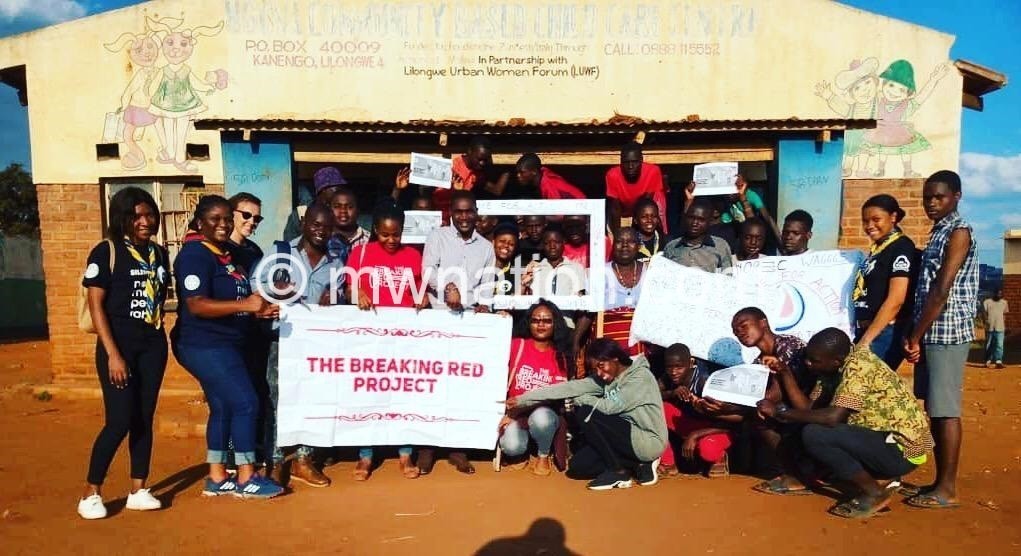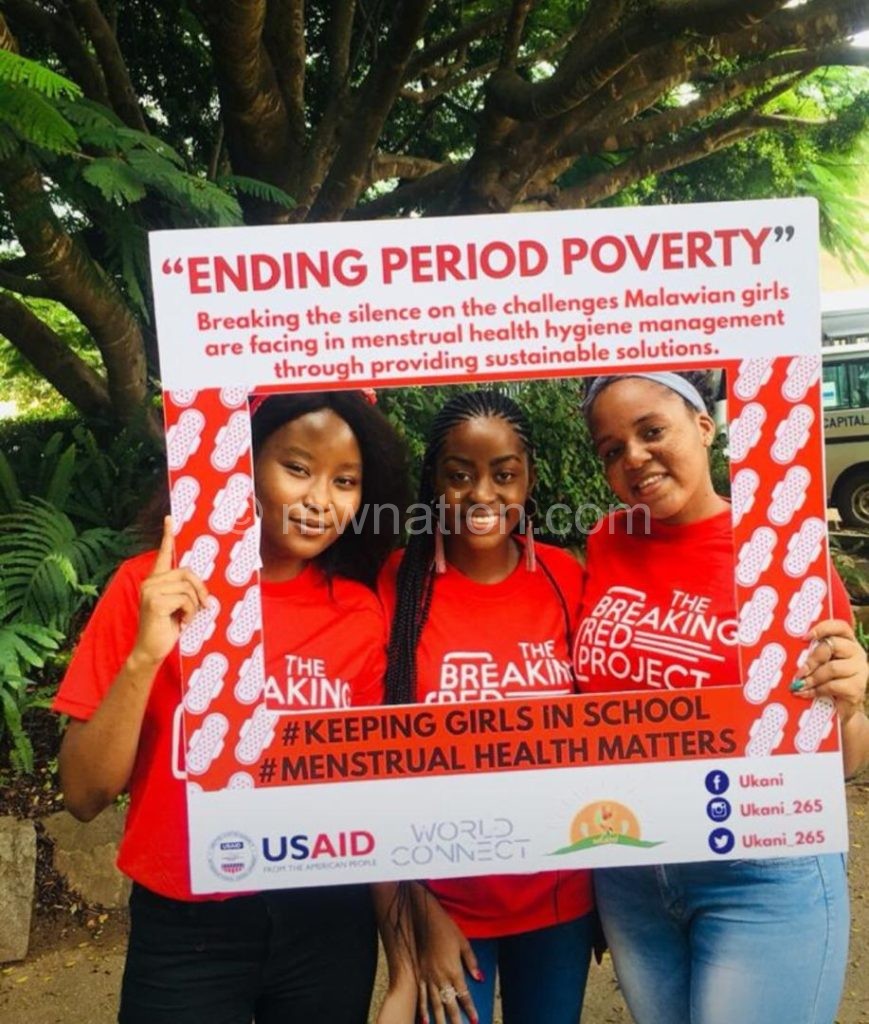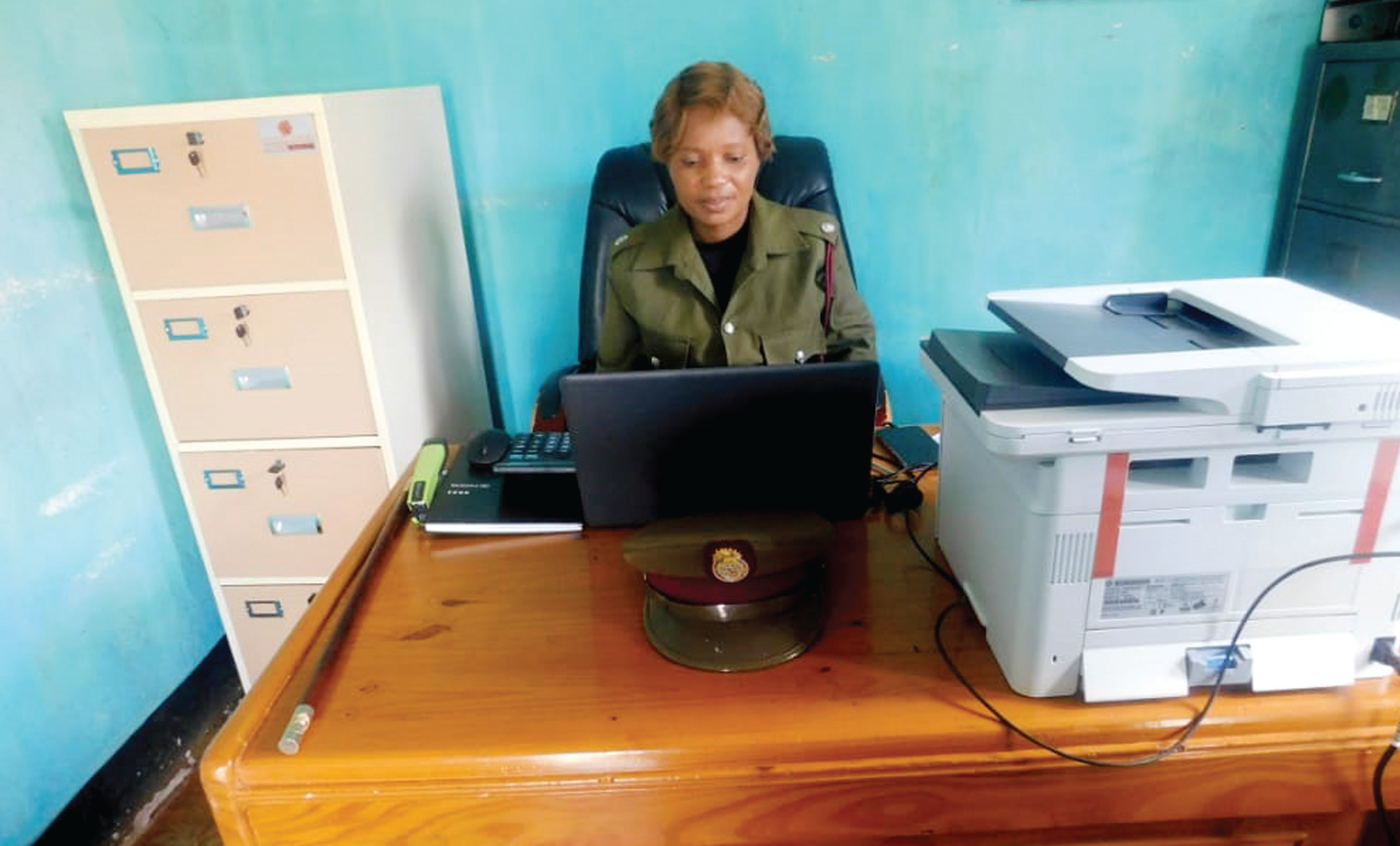Breaking the silence on menstruation
May 28 is Menstrual Hygiene Day that raises awareness and combats taboos associated with menstrual hygiene.
It aims to enable women and girls to achieve their full potential.

Many girls continue to face the wall in conversations to do with menstruation and many boys have not been brought up to speed on the subject.
Access to menstrual materials for most women and girls is limited by the costs, availability of menstrual materials and social norms.
Lack of menstrual hygiene management products has been a contributing factor to keeping girls home from school during their menses each month and some dropping out completely to get married.

Temwa Chirembo of Ukani Malawi an organisation empowering girls and pushing for gender equality, says boys need to be brought into the menstrual health hygiene management conversation to deal with myths and misconceptions that surround the subject.
“We need to ensure that boys unlearn practices that stigmatise girls during their periods at school,” she says.
This years’ World Menstrual Days’ theme is: “It’s time to take action”—a chance to highlight the importance of menstrual care for women and girls, raise awareness and expose problems faced women and girls who don’t have access to sanitary products.
Not only do both boys and girls need awareness on menstruation, but girls need provision of sanitary pads as well.
Globalwaters.org states that more than half of women in the world are currently of reproductive age—and menstruation is a monthly reality.
However, they lack access to menstrual hygiene products or sanitation facilities which Global Waters adds:
“Myths and stigmas surrounding menstruation cause some women and girls to miss school or work or go into isolation.”
The organisaiton observes that women and men of all ages must be made aware of the importance of menstrual hygiene through an open dialogue and education at home and in school to foster engagement with this often unspoken issue.
Sexual Reproductive Health Rights (Srhr) coordinator for Ukani Lipenga says as a country, we are far behind as the myths still reign supreme.
“Girls still fail to talk about it because it is seen as something unclean and shameful,” she says.
There is much more that still needs to be done to break the silence on menstrual health management to break the fear of staining uniforms with period blood and being shamed.
The knowledge, she says has to be extended to male teachers if spaces are to be created where girls are free to speak about menstruation.
She says boys contribute a lot to stigma and discouraging girls from participating fully in class.
“We learnt that whenever a girl misses school, word goes around school that she’s in her periods and they say, wapha mbuzi (she has killed a goat)”, or waphika nyemba (she has cooked beans). The humiliation stops girls from talking about it,” she says.
Lipenga adds that boys can play a role in breaking the silence and ensuring girls have their periods with dignity says Lipenga.





